What are the green tractor brands?In the realm of modern agriculture, the role of tractors stands as pivotal as the crops they tend to. These mechanized workhorses have evolved significantly over time, especially in the realm of sustainability and efficiency. Green tractor brands, in particular, have taken center stage, promising not just power but also eco-friendly innovations that redefine farming practices.
Top Green Tractor Brands

John Deere
One of the stalwarts in the agricultural machinery domain, John Deere, has been a pioneering force in green tractor manufacturing. Their commitment to innovation and reliability has established them as a frontrunner in the industry.
Qilu
Qilu’s line of green tractors boasts a blend of power and environmental consciousness. Their compact yet robust designs cater to various agricultural needs while emphasizing eco-friendly operations.
New Holland
New Holland’s dedication to sustainable agriculture shines through their range of green tractors. Their models integrate advanced technology without compromising on efficiency, making them a trusted choice among farmers worldwide.
Features and Innovations
These machines are packed with cutting-edge technology aimed at enhancing efficiency while minimizing their environmental footprint. From advanced engine designs that optimize fuel consumption to initiatives focused on reducing emissions, these innovations redefine the way tractors operate in modern agriculture. These features not only boost performance but also align with sustainable farming practices, making them a valuable asset for farmers aiming for eco-friendly operations.
Comparison of Models
-
 4 Wheel Drive 140HP Tractor 1604
4 Wheel Drive 140HP Tractor 1604 -
 140HP Farm Tractor 1404
140HP Farm Tractor 1404 -
 130 HP Farmall Tractor 1304
130 HP Farmall Tractor 1304 -
 The Heaviest QILU 260HP Modernization Tractor
The Heaviest QILU 260HP Modernization Tractor -
 Powerful QILU 240HP Heavy Chassis Tractor
Powerful QILU 240HP Heavy Chassis Tractor -
 International Standard Power QILU 220HP Farming Tractor
International Standard Power QILU 220HP Farming Tractor -
 China 100HP Tractor Supplier
China 100HP Tractor Supplier -
 OEM 80HP Tractor Factory
OEM 80HP Tractor Factory -
 China 70HP Tractor Wholesale
China 70HP Tractor Wholesale
When comparing different models of green tractors, several key factors come into play. These factors include power, versatility, and specific use cases. Each brand offers a range of models, each with its unique specifications and capabilities tailored to meet various farming needs. Some models might excel in sheer power, suitable for heavy-duty tasks, while others prioritize versatility, adapting to different farming operations. Understanding these differences helps farmers choose the right tractor model that aligns with their specific requirements, ensuring optimal performance and productivity on the field.
Consumer Reviews and Satisfaction
Consumer reviews and satisfaction play a crucial role in understanding how well green tractors perform in real-world scenarios. These reviews offer insights into users’ experiences with different models, highlighting the strengths and sometimes the limitations of each tractor brand. Positive reviews often emphasize the seamless integration of advanced features, durability, and overall satisfaction with how these tractors contribute to farming operations. By considering these firsthand experiences, farmers can make informed decisions when investing in a green tractor, ensuring it meets their expectations and enhances their productivity on the farm.
| Brand | Positive Aspects | Negative Aspects | Overall Satisfaction |
|---|---|---|---|
| John Deere | Reliable performance, excellent service network | Higher initial cost, occasional maintenance issues | Moderate to High |
| Qilu | Versatility, fuel efficiency | Limited dealer network, some durability concerns | High |
| New Holland | Eco-friendly features, innovative technology | Higher pricing, occasional technical glitches | Moderate to High |
Maintenance and Reliability
Maintenance and reliability are vital considerations for any farmer investing in a green tractor. These machines require regular upkeep to ensure they operate at peak efficiency. Fortunately, many brands offer robust service networks and support systems, simplifying maintenance tasks and ensuring that the tractors remain reliable over their lifespan. This reliability is essential for farmers who rely heavily on their equipment for various agricultural tasks. Brands that prioritize durability and offer comprehensive maintenance support tend to earn trust and loyalty within the farming community, providing peace of mind to farmers as they work on the field.
Cost Considerations

Cost considerations play a significant role when farmers evaluate green tractors. The pricing structures of these tractors vary based on their features, capabilities, and brand. While some green tractors might have a higher initial cost due to their advanced technology and eco-friendly features, they often provide excellent long-term value for money. Farmers assess not only the initial purchase price but also factors like fuel efficiency, maintenance costs, and the overall return on investment these tractors offer over time. Striking a balance between cost and the features provided is crucial for farmers, ensuring they make a financially sound decision while still benefitting from the innovative technologies these tractors bring to their farming operations.
Future Trends in Green Tractor Industry
The future of the green tractor industry holds exciting prospects and advancements. There’s a clear trajectory towards further technological innovations aimed at enhancing efficiency and sustainability. Manufacturers are expected to continue integrating smart technologies into these tractors, enabling more precise and automated farming operations. Additionally, there’s a growing emphasis on sustainability, with an increased focus on reducing carbon footprints through advanced emission control systems and eco-friendly features. The industry is also gearing towards developing tractors that are more fuel-efficient and environmentally conscious, aligning with the global push towards sustainable agriculture. Expectations include smarter machines that leverage data analytics, artificial intelligence, and automation, revolutionizing the way farming is done while prioritizing eco-friendly practices for a more sustainable future.
Conclusion
In conclusion, green tractor brands stand at the forefront of agricultural innovation, offering more than just machinery. They represent a fundamental shift towards sustainable farming practices. These tractors, with their blend of cutting-edge technology and eco-friendly initiatives, redefine efficiency in agriculture. From advanced engine designs to a focus on reducing environmental impact, these brands have reshaped farming practices. The commitment to innovation and sustainability ensures that green tractors continue to revolutionize the agricultural landscape, promising a more efficient and environmentally conscious future for farmers worldwide.
FAQs
- Are green tractors more expensive than traditional ones?
Green tractors may have a higher initial cost due to their advanced features, but their long-term efficiency often provides excellent value for money. - Do green tractors require specialized maintenance?
While some maintenance may be specific to advanced features, most service networks are well-equipped to handle these requirements. - Are green tractors suitable for small-scale farming?
Yes, many brands offer compact models suitable for various scales of farming, including small-scale operations. - How do green tractors contribute to environmental sustainability?
They incorporate technology that reduces emissions and optimizes fuel consumption, minimizing their environmental impact. - What sets green tractor brands apart from conventional ones?
Green tractor brands prioritize eco-friendly features and technological innovations, offering a more sustainable farming solution compared to conventional models.

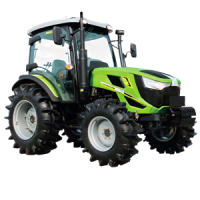
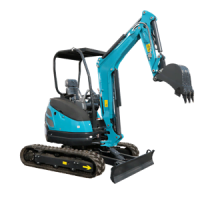
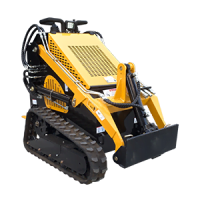
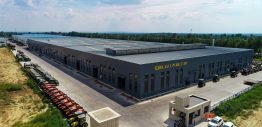

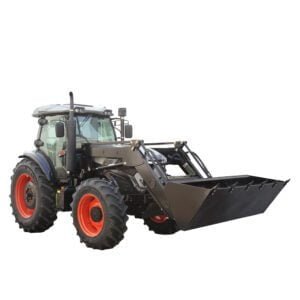
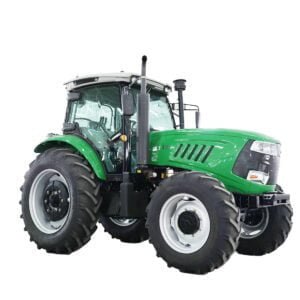






-1.png)